
Chronic hives (urticaria) is a bothersome and sometimes complicated condition in which the patient's skin gets covered with batches of raised, red and white itchy welts of different size. These skin changes come and go and generally represent a long-term problem. The condition is considered chronic if it lasts longer than 6 weeks or is recurrent.
Clinical Characteristics of Urticaria
The skin rash may cover different parts of the body such as the neck, arms, legs and trunk. This is an allergic reaction which may develop after exposure to allergens of different kind. The body's reaction is in a form of wheals or hives. They are transient, reddish and itchy. The skin may be additionally swollen. The skin rash spreads peripherally and may create bizarre patterns on the skin.
It is easy for a well-experienced doctor to recognize raised red and white patches which appear on the skin of an allergic individual. Patients typically complain about burning and stinging sensations and uncontrollable itching. Since most of them cannot restrain from scratching the affected skin, it is common for the condition to aggravate.
The formation of the skin changes is sudden and quite rapid. The skin eruptions may fade soon after they have appeared which is basically followed by new eruptions on other parts of the body.Causes of Urticaria
The underlying cause of urticaria may remain unknown. On the other hand, experts know that the skin reaction develops as a consequence of release of histamine and other chemical mediators from the mast cells (cells that are normally found in the dermis of the skin). Such release is immunological or may not have to be connected with immunological allergic response at all.
There are some triggers which contribute to urticaria such as viral infections, skin contact with certain chemicals, latex, cosmetics, plants, ointments etc. Even insect bites and stings may cause urticaria.
Prevention
Urticaria is sometimes closely related to overheating. Thus, one should avoid state of overheating and this way prevent typical skin rash. Apart from the mentioned any potential trigger of urticaria is supposed to be avoided if one wants to prevent the condition.
For example, people who have developed hives due to consumption of certain foods, food additives, alcohol or medications may avoid recurrence of the condition if they abstain from intake of some the mentioned. If uriticaria develops as a result of stress, stress management can be a powerful tool of prevention.
Still, if the symptoms and signs of urticaria in spite of all preventive measures develop, one may benefit from antihistamines. More severe cases are treated with corticosteroids and epinephrine.


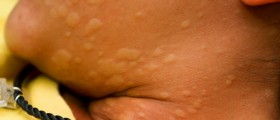
-Causes,-Symptoms-And-Diagnosis_f_280x120.jpg)
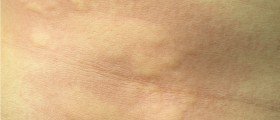
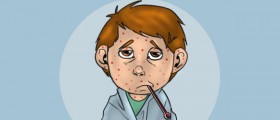
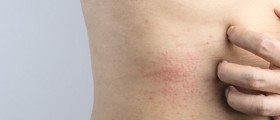


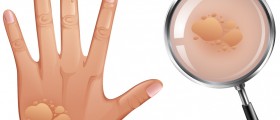




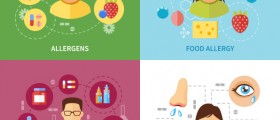


Your thoughts on this
Loading...